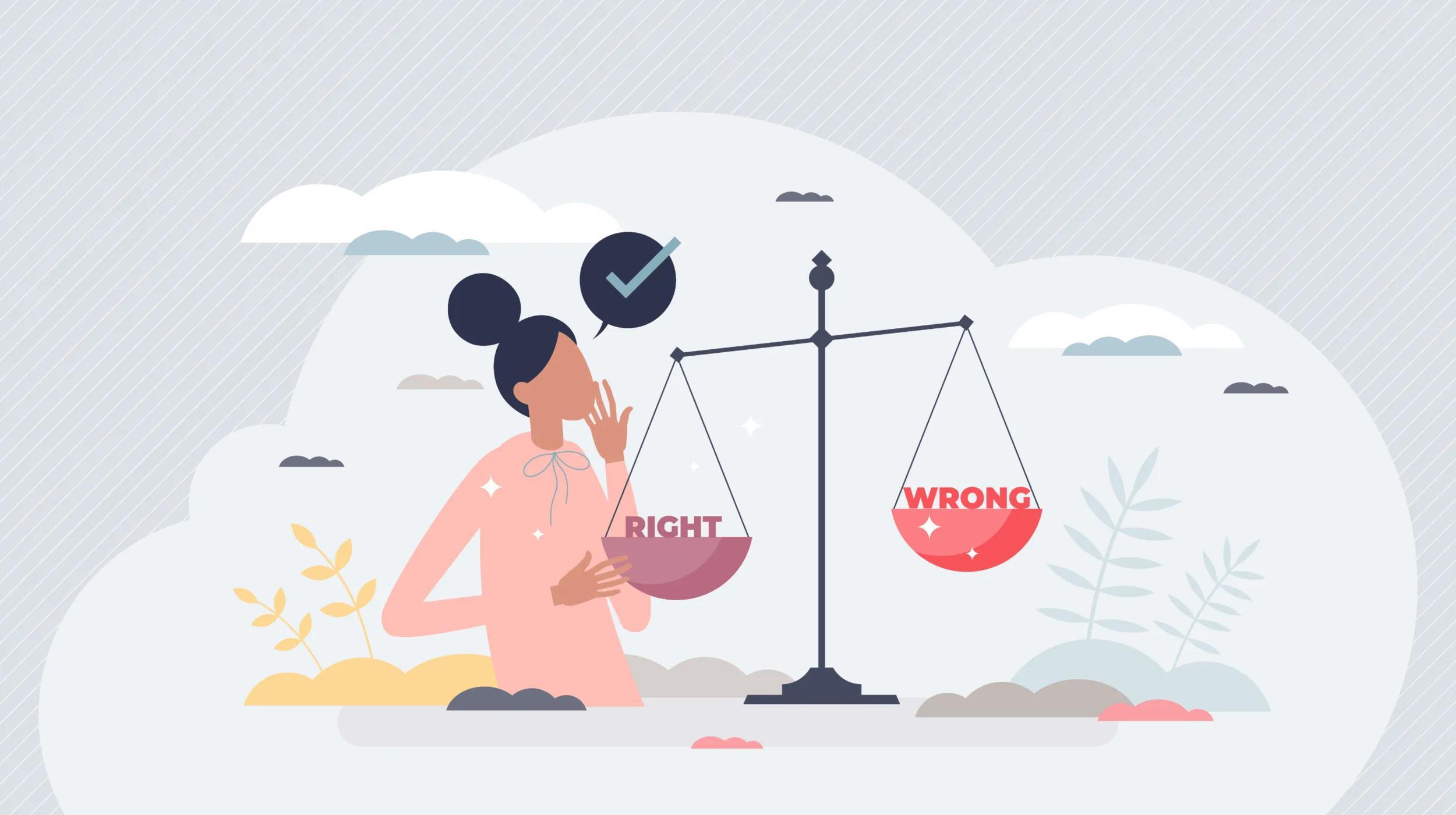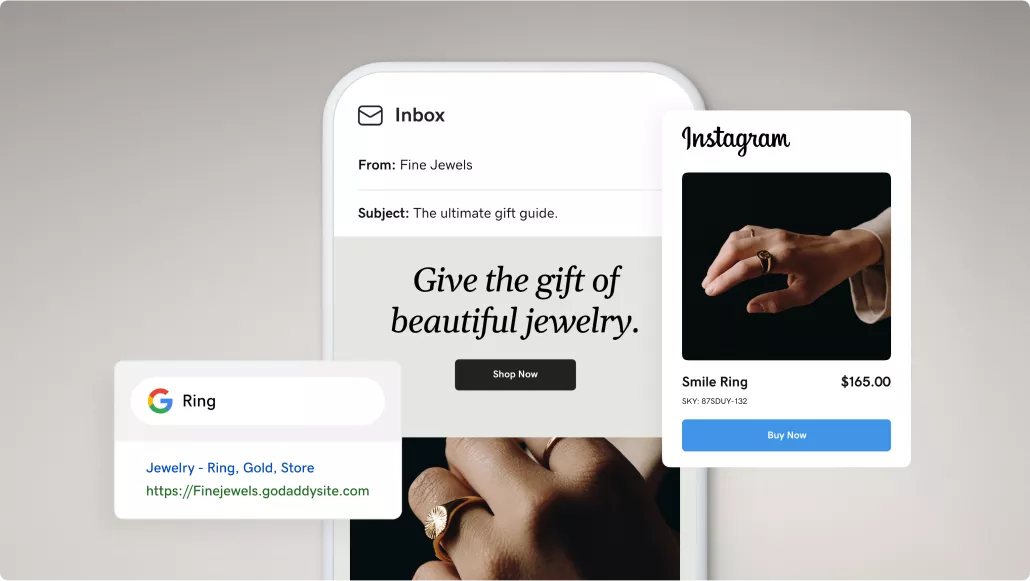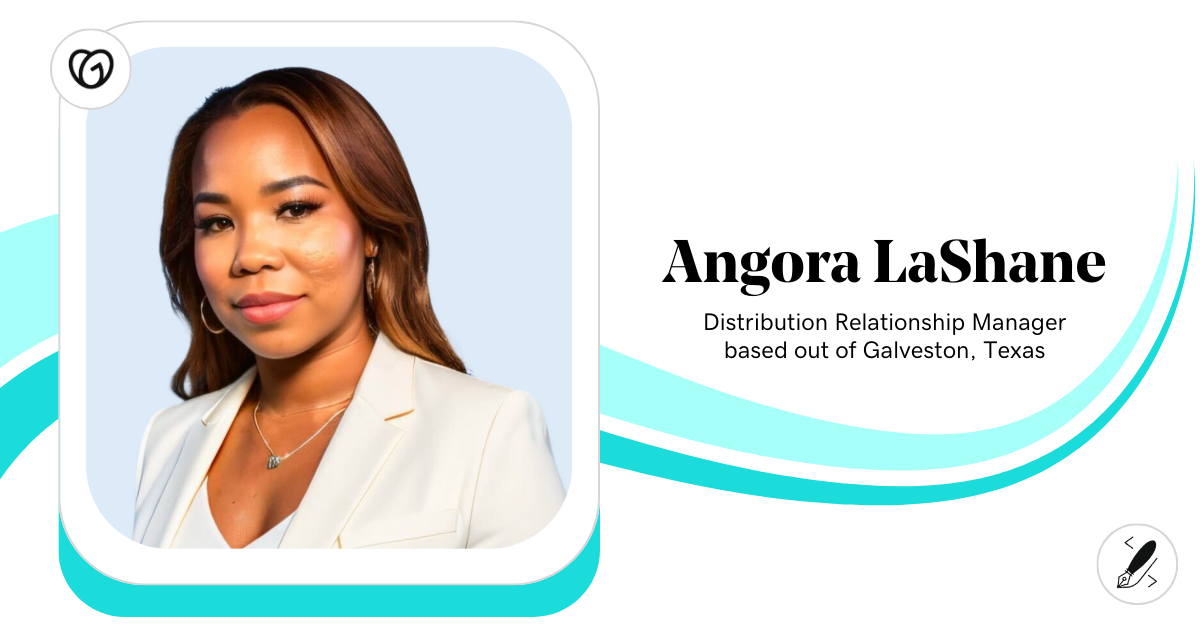Social media is a powerful tool—but with great power comes great responsibility. Every day, business leaders face ethical dilemmas online, from handling misinformation to maintaining transparency with their audience. How should small business owners handle these situations?
Let our experts handle your digital marketing campaigns.
Ethical social media practices from 18 business leaders
We asked 18 experts to share real-world ethical dilemmas they've encountered on social media and how they resolved them. Their insights offer practical strategies for building trust, staying authentic, and making responsible decisions in the digital space.
1. Educate clients on risks of fake engagement
One ethical dilemma I faced on social media was working with a client who wanted to buy fake followers and engagement to make their brand appear more established. While they believed this would boost credibility, I knew it could harm their long-term reputation, lower organic reach, and violate platform policies.
I educated the client on the risks of fake engagement—how social platforms detect and penalize inauthentic activity, and how real audiences value authenticity over inflated numbers. Instead, I proposed a strategy focused on organic growth through high-quality content, strategic partnerships, and targeted paid ads. Over time, this approach built a genuine, engaged audience that converted into actual customers.
Advice for others facing similar issues:
- Prioritize authenticity: Shortcuts might seem appealing, but genuine engagement always wins in the long run.
- Educate and set expectations: Clients or employers may not be aware of the consequences of unethical practices. Provide data and real-world examples.
- Stand your ground: If a strategy feels dishonest, don't compromise your integrity. Propose ethical alternatives that achieve the same goal.
- Know platform policies: Staying informed about social media guidelines ensures compliance and protects your brand or business.
Ethics in social media marketing are critical for maintaining trust and credibility. Transparency and honesty always yield better results than quick, deceptive tactics.
Devon Yancey, founder, Yancey Social
2. Handle misinformation with transparency
One ethical dilemma I faced on social media involved handling misinformation in a professional setting. While managing a brand's social media presence, I noticed a post gaining traction that contained inaccurate claims about the company's product. The dilemma was whether to ignore it and avoid drawing more attention or to publicly correct the misinformation, risking negative backlash.
Instead of responding impulsively, I:
- Verified the facts internally to ensure complete accuracy.
- Engaged privately first: I reached out to the person who posted the claim, clarifying the facts in a respectful manner.
- Issued a transparent public response: I crafted a professional, fact-based response in the comments, ensuring it remained neutral and informative rather than defensive.
- Created a proactive content strategy: We later published a post addressing common misconceptions, reinforcing trust and brand credibility.
Advice for others facing similar issues
- Stay calm and fact-check: Emotional responses can escalate situations. Take time to confirm the details before acting.
- Prioritize private communication first: If possible, resolve the issue directly to prevent unnecessary public disputes.
- Be transparent but professional: Honesty builds credibility, but the tone should always remain respectful and solution-focused.
- Use it as a learning opportunity: Addressing misinformation proactively can strengthen your brand's relationship with its audience.
Handling ethical dilemmas on social media requires a balance of integrity, transparency, and strategic communication—all essential for maintaining trust in the digital space.
Akhilesh Sharma, PR strategist
3. Address content theft professionally
A few months ago, I noticed one of my original blog posts had been copied and reposted by a larger account without credit. The engagement on their post was skyrocketing, while my original barely got noticed. I debated calling them out publicly, but I knew that approach could backfire. Instead, I took a strategic route. I messaged them directly, providing timestamps of my original content and a professional but firm request for proper attribution. When they ignored me, I rallied my community, asking them to comment on the post with a link to my original work. The pressure worked. They edited their post to include credit and even followed my page afterward.
For anyone facing content theft or ethical dilemmas on social media, keep receipts, stay professional, and use your community for support. Public callouts can be tempting, but strategic action often gets better results.
Doreen Nunez, founder and creative director, Mommy Rheum
4. Own mistakes and correct publicly
Once, I managed a brand's social media and accidentally shared misleading info. A follower pointed it out, and instead of ignoring or deleting the comment, I chose transparency. I thanked them, updated the post with the correct info, and acknowledged the mistake. This built trust and credibility. My advice: always own your mistakes, correct them publicly, and engage honestly. People appreciate authenticity more than perfection, and it strengthens your brand's reputation.
Katarina Mirković Arsić, content marketing manager, Recharge Health
5. Reject unethical practices for long-term success
One ethical dilemma I faced on social media was when a potential client approached us, asking to manipulate search rankings by posting fake positive reviews and negative reviews about competitors. They saw it as "just part of the game," but for me, it was a clear breach of ethical marketing practices.
I had to make a choice: take on the client and compromise integrity or turn them down and potentially lose business. I explained to them why this approach was not only unethical but also risky—search engines are getting smarter, and fake engagement can backfire, leading to penalties or loss of credibility. Instead, I offered them a legitimate SEO strategy focused on real value, quality content, and organic engagement. They didn't like my answer and walked away, but I knew I made the right call.
My advice? Always play the long game. In digital marketing, your reputation is everything. If something feels ethically questionable, trust that instinct. Be transparent with clients, educate them on ethical best practices, and be willing to walk away when necessary. Integrity in marketing isn't just about doing what's right—it's also what leads to sustainable success.
Kay Velik, communications and partnership director, Nine Peaks Media
6. Advocate for systemic solutions
As a disability advocate, I once faced a dilemma when a viral post accused an NDIS provider of serious misconduct. People were calling for boycotts and legal action, but I knew from experience that not everything is as it seems online. While the anger was valid, I also understood that misinformation could harm participants who relied on that provider for essential support. Instead of fueling the outrage, I reached out to those affected, checked for missing context, and encouraged people to focus on systemic solutions—i.e., reporting through proper channels and advocating for better safeguards. My advice? Social media is powerful, but real change happens when we move beyond outrage and push for accountability in the right ways.
Aaron Cotton, co-founder, Marco Polo Portal
7. Focus on ethical SEO strategies
One ethical dilemma I faced on social media was exposing a competitor using shady SEO tactics to outrank my clients. I had concrete evidence—link farms, fake reviews, and keyword stuffing galore. I knew that if I called them out publicly, it could damage their reputation and possibly get them penalized by search engines. But at the same time, I had to consider whether it was my place to act as the SEO police.
Instead of going on the offensive, I focused on strengthening my clients' content strategies. We doubled down on high-quality, value-driven content that naturally attracted links and engagement. I also reached out privately to a few industry peers to discuss the broader issue of unethical SEO practices and how we, as an industry, should respond. Over time, Google's algorithms caught up with the competitor's tactics, and their rankings dropped. Justice was served—not by me, but by the system working as intended.
My advice to others facing similar ethical dilemmas is to think long-term. Social media makes it easy to react impulsively, but public call-outs can backfire, make you look petty, or even lead to legal trouble. Instead, focus on what you can control: your integrity, your strategy, and your work. If someone is cutting corners, trust it will catch up with them. And if the issue is serious, consider private discussions or reporting through the proper channels rather than engaging in social media drama. Reputation is built over years and can be lost instantly—so always take the high road.
James Parsons, CEO, Content Powered
8. Respond calmly to deceitful reviews
One ethical challenge I encountered on social media involved a past client who wrote a deceitful review about our service on LinkedIn. I understood that a confrontational reaction could hurt our reputation even more, but not saying anything seemed to mean that we were not defending our workers' work.
I decided to reply in a respectful but honest manner, providing background information regarding the issue with the project but not compromising any confidence and not throwing anyone under the bus. I extended an invitation for them to have a private conversation in an effort to work out any lingering concerns.
My advice is to respond calmly and empathetically, even when wronged, and have a factual basis, respect privacy boundaries, and issue offline invitations for positive dialogue when necessary. Having a balanced stance portrays integrity and can turn a potential PR fiasco into an opportunity to reinforce trust in your brand.
Alina Samchenko, content manager and COO, Hire Developers Biz
9. Verify information before promoting products
I once faced an ethical dilemma when I was asked to promote a health product on social media. The brand claimed it had amazing benefits, but after researching, I found that there was no strong scientific backing. Promoting it without verifying its effectiveness felt dishonest. To resolve this, I contacted the brand for more details and consulted a healthcare professional. When I didn't receive satisfactory answers, I chose not to promote the product. Instead, I wrote an unbiased review, highlighting the importance of fact-checking before trusting health claims online.
Advice for others:
- Verify information: Always fact-check before sharing or endorsing anything.
- Stay honest: Your credibility is more valuable than any short-term gain.
- Engage transparently: If you have concerns, address them openly with your audience.
Ethical choices may not always be easy, but they build long-term trust.
Nikhil Kumar, founder and content strategist, TheGlobals Info
10. Provide neutral and educational responses
One ethical dilemma I faced on social media was when a competitor's users started asking us for help with web scraping issues. They were frustrated with their current tool and wanted advice. I had to decide whether to engage or ignore them. Promoting our product felt like taking advantage of their struggles, but ignoring them felt like a missed opportunity to help.
I chose to respond neutrally and educationally. I shared general best practices for web scraping without directly promoting our platform. I also mentioned that different tools have different strengths and encouraged them to explore options that fit their needs. Some of them naturally became interested in our product and switched over, but it happened organically.
My advice is to always lead with value. If you focus on being helpful rather than just selling, you build trust. People remember brands that genuinely help them, not just those that push a product. Also, stay professional, don't talk down on competitors, even if their users are unhappy. It's a long game, but ethical engagement builds a strong reputation.
Kevin Liu, VP of products, Octoparse
11. Address negative feedback transparently
One ethical dilemma I faced on social media was whether to delete a negative but honest review of my business. A client had left a public comment expressing dissatisfaction with a misunderstanding—not an actual flaw in our product. Removing it would have protected our brand image but also felt dishonest.
Instead of deleting the comment, I responded transparently, acknowledging their concerns and offering to resolve the issue privately. This approach not only salvaged the client relationship but also demonstrated to potential customers that we handle criticism professionally.
My advice is never to let short-term reputation management override long-term trust. Address negative feedback with transparency, empathy, and a solutions-oriented mindset. Authenticity on social media builds credibility and stronger customer relationships.
Shu Saito, CEO and founder, All Filters
12. Maintain integrity over positive reviews
A serious ethical dilemma I've faced on social media is the pressure to post positive reviews for a restaurant that offered a free meal, even when the experience didn't meet my standards. As someone who has built trust with my audience for 27 years, maintaining integrity is non-negotiable. I have to protect my credibility at all costs. In this instance, instead of posting a misleadingly positive review, I chose to provide private, constructive feedback to the restaurant owner. They were so appreciative of my feedback, that I was invited back 2 months later, and was served the same dishes so that they could show the dramatic improvement they had made. It's better to say nothing than to mislead your followers. Integrity always comes first.
Darryl Gordon, owner/consultant, SanDiegoFoodieFan
13. Communicate product capabilities honestly
I've encountered the ethical dilemma of overstating our product's capabilities on social media, especially when we're excited to share new features or achievements. Early on, we made the mistake of emphasizing some aspects of our technology in a way that could be interpreted as too optimistic or exaggerated. This created a risk of setting unrealistic expectations, which could damage trust if our product didn't deliver exactly as portrayed.
To resolve this, we took a step back and re-evaluated how we communicate about our product. I made sure we only shared verifiable claims and provided clear disclaimers when discussing new features that were in development. We also started using customer testimonials and case studies to show real-world applications, which helped build more authenticity around what we were offering.
My advice for others facing similar challenges is to stay grounded and be transparent. Always under promise and overdeliver. It's tempting to make bold claims, but honesty and clarity go a long way in building long-term trust, especially on social media. If you make an error, own up to it quickly and learn from it; this is key to maintaining credibility with your audience.
Vivek Vaidya, co-founder and CTO, Ketch
14. Ignore competitor criticism and focus on value
An ethical dilemma I've faced countless times during my 12+ years as CMO at tech companies: competitors publicly criticizing our product on social media with false claims. The main question: do you engage or stay above it?
Early in my career, I made the mistake of engaging in these social media battles. A competitor would criticize our features with false claims, we'd respond to it regarding their claims and pointing out their flaws, and suddenly we're in a public spat. A big learning was: every time we engaged, it damaged our brand more than any competitor criticism ever could.
What works best is to focus entirely on showcasing our value and let results speak for themselves. No defensive responses, no “counter-attacks.” Just clear communication about what we do best and why our customers choose us.
The moment you engage in competitive mud-slinging, you've already lost the positioning battle. Your brand's reputation isn't built on winning arguments on social media, it's built by delivering real value.
So how to solve it when competitors try to drag you into a public fight? Just ignore it. Focus your energy on highlighting your unique strengths.
Tom Van den Heuvel, CMO, wetracked.io
15. Respond thoughtfully to social media controversy
Ethically, I once faced an ethical dilemma when a social media post about one of our nonprofit partners sparked unexpected controversy. The post highlighted their impact, but some followers pointed out past controversies related to the organization. We had to decide whether to take the post down, issue a statement, or stand by our support. Instead of reacting immediately, we took a step back, researched the concerns, and reached out to the nonprofit for their perspective.
After careful consideration, we updated our post to acknowledge the concerns while reaffirming our belief in the organization's current work. This approach kept our integrity intact and showed that we listen and engage thoughtfully. My advice is don't rush to delete or defend, pause, research, and respond with transparency. Acknowledge concerns, but don't let online pressure dictate your values. Thoughtful, honest engagement always wins in the long run.
Justin Wheeler, co-founder and CEO, funraise
16. Balance client desires with ethical advertising
One of the ethical dilemmas I had to face on social media was when a client wanted to run a campaign exaggerating the benefits of their product. The product was of good quality, but the messaging they wanted to propose implied results not quite realistic. As a marketing professional, I had to find a balance between the client's desire for strong engagement and my ethical responsibility to honest advertising. I worked my way through it by having an open talk with the client about the risks that misleading claims would have, such as backlash and damage to their brand's reputation. Instead, we repositioned the campaign to lead the real customer testimonials and data-backed benefits, which ultimately built trust with their audience and long-term brand loyalty.
If faced with a similar situation, I'd encourage the person to step back and look at the long-term implications of such a decision. Yes, sometimes an outlandish claim or controversy can often drive engagement, but they serve little purpose in building trust and credibility in the longer term. Be transparent about ethical risks to your clients or stakeholders, and present alternative strategies that align with authenticity and integrity. Honesty in times of digital transparency is still part of doing right, but it is also a pretty strong marketing instrument that will build longstanding relations with its audience.
Anton Kovalchuk, founder, QliqQliq
17. Clarify controversial takes thoughtfully
A few years ago, I posted a controversial take on hustle culture. I was pushing the idea that working insane hours was the key to success. While I believed in my message, I quickly faced backlash. People pointed out that promoting relentless work without acknowledging mental health and work-life balance could be harmful. Some even accused me of glorifying burnout.
At first, I wanted to defend myself. My instinct was to double down. After all, I was just sharing what worked for me. But then I stepped back and listened. I was wondering if people were misunderstanding my point or if there was truth in their criticism.
I realized that while my journey involved long hours and sacrifices, not everyone could (or should) take the same approach. Success looks different for everyone. Instead of deleting my post or fighting back, I chose to clarify. I wrote a follow-up post, acknowledging that my perspective was personal and that balance is key. I also highlighted other paths to success, including smart delegation and focusing on high-impact work instead of just long hours.
The response was positive. I turned criticism into a conversation by embracing feedback instead of resisting it.
My advice for those facing an ethical dilemma on social media is don't react impulsively. Pause, reflect, and engage thoughtfully.
Deepak Shukla, CEO, Pearl Lemon
18. Post engaging content without objectification
As a photographer currently utilizing social media for marketing purposes, I have observed that photographs of women in revealing attires (bikinis for example) tend to garner more attention. This poses an ethical problem for me because it encourages the objectification of these models online and also creates an online environment in which the only representation of femininity available for impressionable teenagers are pictures of women who have little to no clothing on.
I tackle this problem by understanding that it is not necessary to mimic competition in order to measure up to it. I try to post content that is engaging to my viewers. I post images that combine colors in interesting ways, I play with composition and try to utilize captivating settings. I utilize models who are elegantly dressed and also utilize models who have striking and compelling physical features.
My advice for others who are facing similar issues is this: stay true to your ethical values because they are part of you and if you own a business, those values would also be part of your brand!
Oma Oguejiofor, photographer/videographer, N.N.E PHOTOGRAPHY
Disclaimer: Opinions belong to the author alone and do not necessarily represent the views of GoDaddy. All trademark rights belong to their respective owners. Third-party trademarks are used here for demonstrative and educational purposes only; use does not represent affiliation or endorsement.








